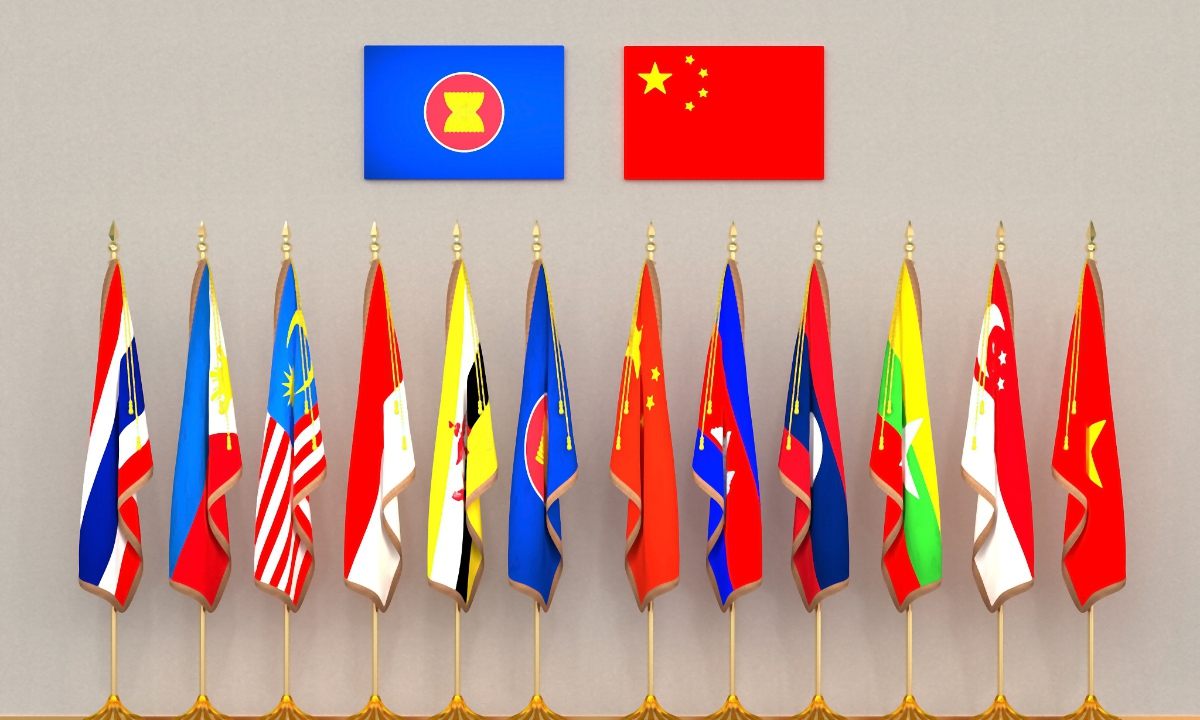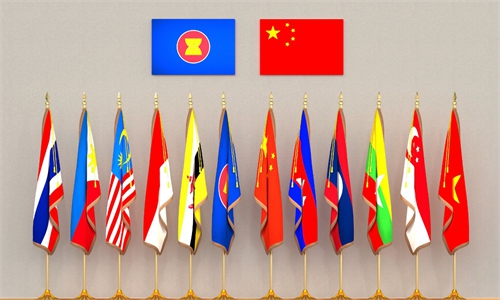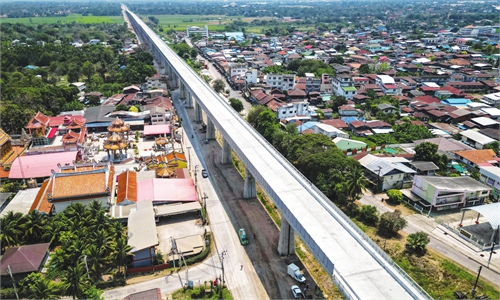Wang Yi to attend ASEAN meetings in Jakarta, 'broader cooperation overrides limited disputes'

China ASEAN Photo:VCG
China's top diplomat Wang Yi will attend a series of ASEAN meetings in Jakarta from Thursday to Friday, the Chinese Foreign Ministry announced on Tuesday, as China reiterates its support for ASEAN unity and emphasizes its commitment to properly handling sensitive issues with regional countries.
Although the meetings are held annually, 2023 marks a juncture as China and ASEAN are working toward an enhanced partnership to jointly cope with the slowing global economy and geopolitical challenges, analysts said.
Wang, director of the Office of the Foreign Affairs Commission of the Communist Party of China's Central Committee, will attend the ASEAN-China Foreign Ministers' Meeting, the ASEAN Plus Three Foreign Ministers' Meeting, the East Asia Summit Foreign Ministers' Meeting and the ASEAN Regional Forum Foreign Ministers' Meeting.
US Secretary of State Antony Blinken and Russia's Foreign Minister Sergei Lavrov will also attend some of the meetings.
China expects to build more consensuses through the meetings, make political and fruitful preparations for the East Asia Cooperation Leaders' Meeting in September, and promote regional peace, stability and prosperity, Foreign Ministry spokesperson Wang Wenbin said at Tuesday's routine press briefing.
Xu Liping, director of the Center for Southeast Asian Studies at the Chinese Academy of Social Sciences, said on Tuesday that the ASEAN meetings are held every year, but 2023 is special.
This year marks the 20th anniversary of the bilateral strategic partnership and China's accession to the Treaty of Amity and Cooperation in Southeast Asia as the first influential extraterritorial power in Indonesia. It is also the 10th anniversary of Chinese President Xi Jinping proposing joint efforts with ASEAN to build a Maritime Silk Road of the 21st century and proposing, for the first time, the concept of building a more close-knit China-ASEAN community of a shared future, also in Indonesia.
It is hoped that yet again in Indonesia, more fruitful achievements can be made, as both China and Southeast Asia are in urgent need of stability and prosperity in the Asia-Pacific amid attempts by some external forces to destabilize the region.
Xu predicts that Wang Yi may discuss with ASEAN diplomats China's signing of the Treaty of Southeast Asia Nuclear Weapon-Free Zone, for which China has voiced support. This would be a responsible move by China, a major power in the region, to safeguard peace and stability.
Progress will be made on negotiating the China-ASEAN Free Trade Zone Version 3.0 and further building of a China-ASEAN community of a shared future, Xu said.
China witnessed a year-on-year trade increase of 15 percent with ASEAN in 2022, the first year the Regional Comprehensive Economic Partnership (RCEP) trade deal went into effect, per official data. The region continues to hold the position of China's top trade partner in the first five months of 2023.
According to Wang Wenbin on Tuesday, China will work with regional countries to make full use of the RCEP, promote the stability of the regional industrial chain and supply chain, practice true multilateralism to promote open regionalism, properly handle hot and sensitive issues, promote regional peace and stability, and maintain the correct direction of East Asian cooperation.
Indonesia is seeking during this week's forum to accelerate talks on a long-stalled Code of Conduct (COC) on the South China Sea, Reuters reported.
Gu Xiaosong, dean of the ASEAN Research Institute of Hainan Tropical Ocean University, told the Global Times on Tuesday, as a regional country with a large population and a robust economy, Indonesia is in an ideal position to coordinate regional affairs, including mediating disputes on the South China Sea and pushing forward the COC talks.
Before the ASEAN meetings, calls emerged in Vietnam and the Philippines to ban the Hollywood movie Barbie over a scene featuring a world map showing China's Nine-Dash Line in the South China Sea.
Xu interpreted those noises as a common phenomenon before the meetings.
The parties involved should adhere to the Declaration on the Conduct of Parties in the South China Sea (DOC), which emphasizes "consultations and negotiations by sovereign states directly concerned" and not make the issue international or more complicated, Xu said.
Gu noted that against the backdrop of China and the US resuming engagement on various fronts, the ASEAN meetings might be less overshadowed by major power competition and more focused on constructive topics.


